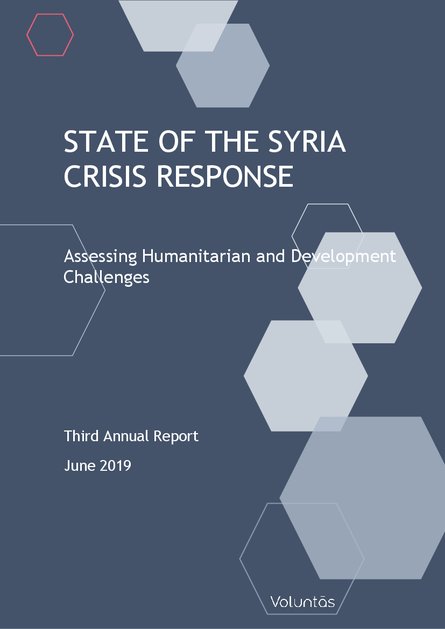
In order to obtain a comprehensive review of the response, Voluntas Advisory surveyed practitioners from international organisations, NGOs, government authorities, private and institutional donors, the private sector and academia, covering the breadth of the refugee and host community response. This reached workers on the ground in Iraq, Jordan, Lebanon, and Turkey to key decision makers.
The survey was conducted in January 2019, a first report was published in November 2016 and second in April 2018. This is the third annual survey conducted.
Overall the study finds that there has been a noticeable increase in the challenges for vulnerable groups. These negative developments relate to the growing pressure on returns and increasingly polarised environment which affect both host communities and refugees in the region. Practitioners are not optimistic that the situation on the ground will improve in the future. Indeed, 4 out 10 practitioners believe the situation for vulnerable groups will be worse next year, as opposed to 1 in 10 that think it will be better. Some improvements can be observed when it comes to the performance and strategies of key response actors i.e. donors, international organisations, international and national NGOs and national authorities. It appears that actors are starting to adjust and learn from past mistakes, as well as exploring new, innovative ways of delivering support to host communities and refugees. However, 4 out of 10 anticipate that the national and international response will be worse next year, while only 1 in 10 think it will improve. Key challenges to the response are the exclusion of affected people in decision-making and insufficient funding for local aid providers. The Grand Bargain Commitments seek to address these issues, but the impact on the ground appears to be limited.
